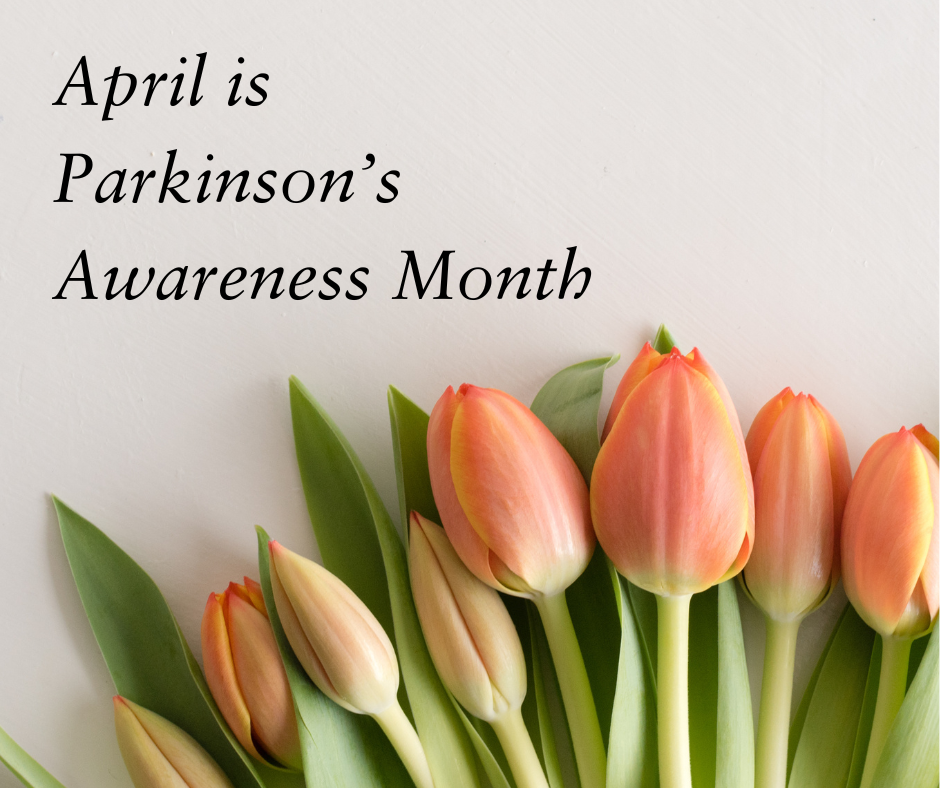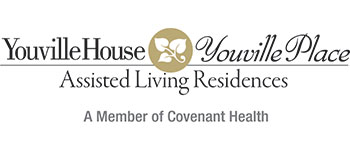April is Parkinson’s Awareness Month
Summary
Parkinson's disease affects one million Americans and 10 million people worldwide. Despite the numbers, the causes and symptoms of PD are still poorly understood and we have yet to find a cure. April is Parkinson's Awareness Month, a time to learn, to educate peers, and to support those we know in the PD community.

Did you know that people living in New England and Midwestern regions of the United States are more likely to have Parkinson’s disease than those living in other regions of the United States? You may know that Parkinson’s is a movement disorder, but did you know it can also affect sleep, vision, the ability to communicate and the ability to plan daily activities?
These and other mysteries are just a small sample of what makes Parkinson’s disease so elusive to those searching for a definite cause and cure. In observation of Parkinson’s Awareness Month, Youville House in Cambridge is proud to host an array of activities for residents and the greater community designed to educate and raise awareness about Parkinson’s disease.
Parkinson’s Support Group
Thursday, April 11 at 3:00 PM
For those living with the challenges of Parkinson’s disease, regular group support can have an enormous impact on morale and emotional wellness. Participants benefit from the opportunity to establish a network, share information and process their experiences with peers who understand what it’s like to have Parkinson’s disease. This group meets every second Thursday of the month.
Tai Chi
Tuesday, April 9,16, 23 & 30 at 10:30 AM
Tai Chi offers a series of meditative movements that open the energy meridians, promoting internal and external strength. This weekly class is open to all residents, regardless of previous Tai Chi experience. Those who practice Tai Chi often report increased levels of energy, focus, happiness and physical wellness.
Crescendo Chorus
Monday, April 15 & 29 at 10:30 AM
Are you losing your voice or having difficulty speaking loudly enough? Consider joining the Youville Crescendo Chorus for a therapeutic singing experience. Led by a Neurologic Music Therapist from MedRhythms, Crescendo Chorus helps people with PD improve breath support, volume, and articulation through enjoyable group singing exercises. No previous musical experience is required.
Ballroom Dancing with Michael Winward
Tuesday, April 16 at 1:30 PM
Inspired by the idea that people of all ages and abilities should have opportunities to dance, Michael Winward has led social Ballroom and Latin dance workshops throughout Greater Boston, witnessing firsthand the many benefits that dancing provides for the “Over-55” community. Dance encourages good posture, offers low-impact, cardiovascular exercise, and connects people through the skills of leading and following.
Save the Date: Dance with Parkinson’s
Thursdays starting May 2 at 10:30 AM
Dance with Parkinson’s engages mind and body through the joyful medium of dance. Often, participants find themselves moving with a sense of freedom and coordination they hadn’t thought possible with Parkinson’s. This weekly class is taught live and in person, by a trained instructor from Urbanity Dance. Don’t miss the introductory class on May 2!
An Overview of Parkinson’s
Parkinson’s is a progressive neurological disease caused by the loss of nerve cells in an area of the brain called the substantia nigra. This loss of cells results in a decrease in the production of dopamine. Without adequate dopamine, the brain loses its ability to control muscles and regulate movement. Parkinson’s affects one million Americans and around 10 million people worldwide.
Unfortunately there are few known risk factors. Age plays a role, with most people contracting the disease in their 60s or older, although some people contract it at a younger age. Males are slightly more likely to have Parkinson’s than females, and there is some evidence of genetic risk factors. Exposure to a toxic commercial pesticide called paraquat was recently linked to Parkinson’s; the chemical has been banned in many countries as a result (though it is still legal in the United States). Otherwise, little is known about what causes the disease or how we can prevent it.
Symptoms vary and can be difficult to recognize. In the early stages they can be too mild to notice, and even after they progress they can be confused with other conditions. Symptoms can be treated and alleviated through medication, group support, specialized physical therapy and a variety of exercises.
- Tremor: Approximately 70 percent of people first experience slight shaking in a hand or finger on one side of the body. The tremor may eventually spread to both sides of the body.
- Slowed movement: Movements that were once automatic, such as taking a step forward, getting dressed, or even smiling become more difficult.
- Festination: This is characterized by quick, short, shuffling steps.
- Rigidity: Muscles can stiffen and become difficult to move.
- Postural instability: Loss of control over muscle movement leads to a lack of balance and an increased risk for falls. Physical exercises that strengthen muscles and improve balance are recommended.
- Speech Problems: Neurological changes in the brain make it difficult to speak loudly, to intonate, and to articulate words clearly. Speech therapy can help Parkinson’s patients improve speech.
If you have any questions about Parkinson’s programs at Youville, please ask!
For more information about Parkinson’s disease, the Parkinson’s Foundation is a wonderful resource.



